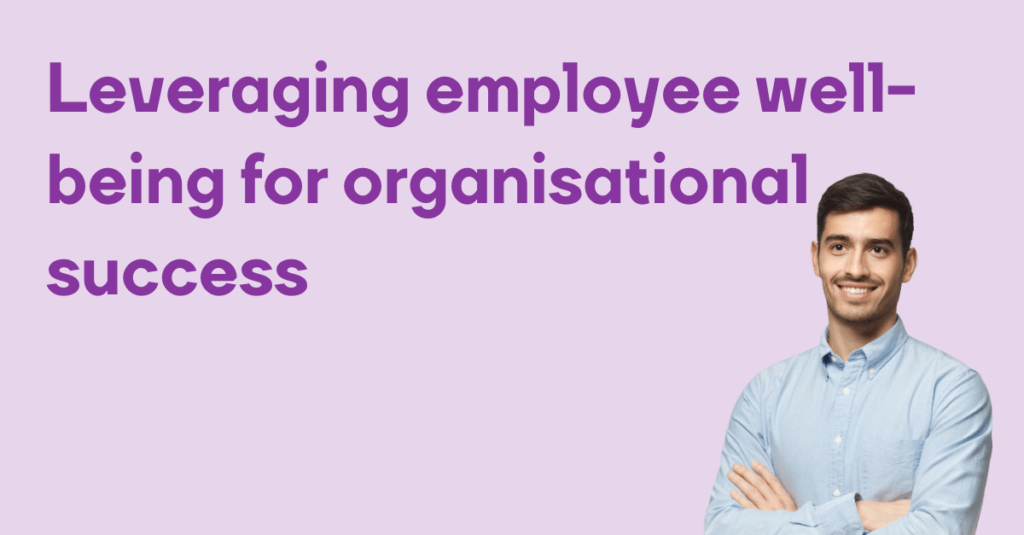The significance of employee well-being cannot be overstated. As HR professionals and recruiters, it is our responsibility to create an environment that not only attracts top talent but also nurtures their overall well-being.
The Chartered Institute of Personnel and Development (CIPD) states that ‘’creating an environment that actively promotes a state of contentment, benefiting both employees and the organisation. Investing in employee wellbeing can lead to increased resilience, better employee engagement, reduced sickness absence and higher performance and productivity.’’

It goes without saying that if you want your business to have the best chance of delivering results you need to focus on creating an environment that encourages success and allows your people to deliver.
In this article, we will explore some key strategies and best practices that you can use to promote employee well-being for organisational success. By prioritising the psychological and emotional needs of your workforce, you can create a thriving organisational culture that drives productivity, engagement, and ultimately, business results.
Cultivate a supportive work environment:
- Creating a supportive work environment lays the foundation for employee well-being. HR professionals should work with their leaders to establish a culture of respect, empathy, two-way feedback and open communication. Encourage employees to voice their concerns and ideas, and ensure their feedback is valued and acted upon. Foster a sense of belonging and inclusion by celebrating diversity and promoting equal opportunities for growth and development.
Advocate work-life balance:
- Allowing your employees to maintain a healthy work-life balance is essential for their well-being. HR professionals should advocate for policies that encourage flexible work arrangements, such as remote work or flexible hours. By accommodating personal responsibilities and providing opportunities for rest and rejuvenation, employees can achieve a sense of equilibrium, resulting in increased motivation and productivity.
Support mental health initiatives:
- Recognising the importance of mental health is crucial if you are to leverage employee wellbeing for organisational success. Promote awareness about mental well-being through training sessions, workshops, and informative resources. Establish employee assistance programs (EAPs) that offer confidential counselling services and resources to support individuals dealing with mental health challenges. Create a stigma-free environment where employees feel safe seeking help and support when needed.
Provide opportunities for career development:
- Providing your employees with some sense of growth and advancement will contribute significantly to their well-being. HR professionals should work closely with managers to identify and create development opportunities for employees. Provide mentorship programs, team building workshops that help develop skills, and opportunities for cross-functional collaborations. Encouraging employees to expand their knowledge and develop their skills not only enhances their job satisfaction but also strengthens their commitment to your business.
Encourage flexibility:
- High workloads and excessive stress can detrimentally impact employee well-being. HR professionals should proactively monitor workloads and encourage managers to distribute tasks fairly. Promote effective time management practices, delegation, and realistic goal-setting. By ensuring employees have manageable workloads, organisations can go some way to help mitigate burnout and provide a healthier work environment.
Promote wellness initiatives:
- Investing in employee wellness programs can significantly contribute to overall well-being. HR professionals can organise wellness activities such as yoga classes, meditation sessions, or fitness challenges. Encourage employees to participate and emphasise the importance of self-care. Additionally, consider providing resources like healthy snacks, ergonomic workstations, and access to mental health support apps to support their well-being journey.
The bottom line
As HR professionals and recruiters, we have the power to shape the well-being and success of our organisations. By adopting a holistic approach that integrates supportive work environments, work-life balance, mental health initiatives, career development, workload management, and wellness programs, we can create a culture that values and prioritises employee well-being.
Ultimately, investing in the well-being of our workforce will yield immense benefits, including increased engagement, productivity, retention, and overall organisational success. Let’s embrace the opportunity to create a thriving workplace where employees can flourish and grow.
Sources:



